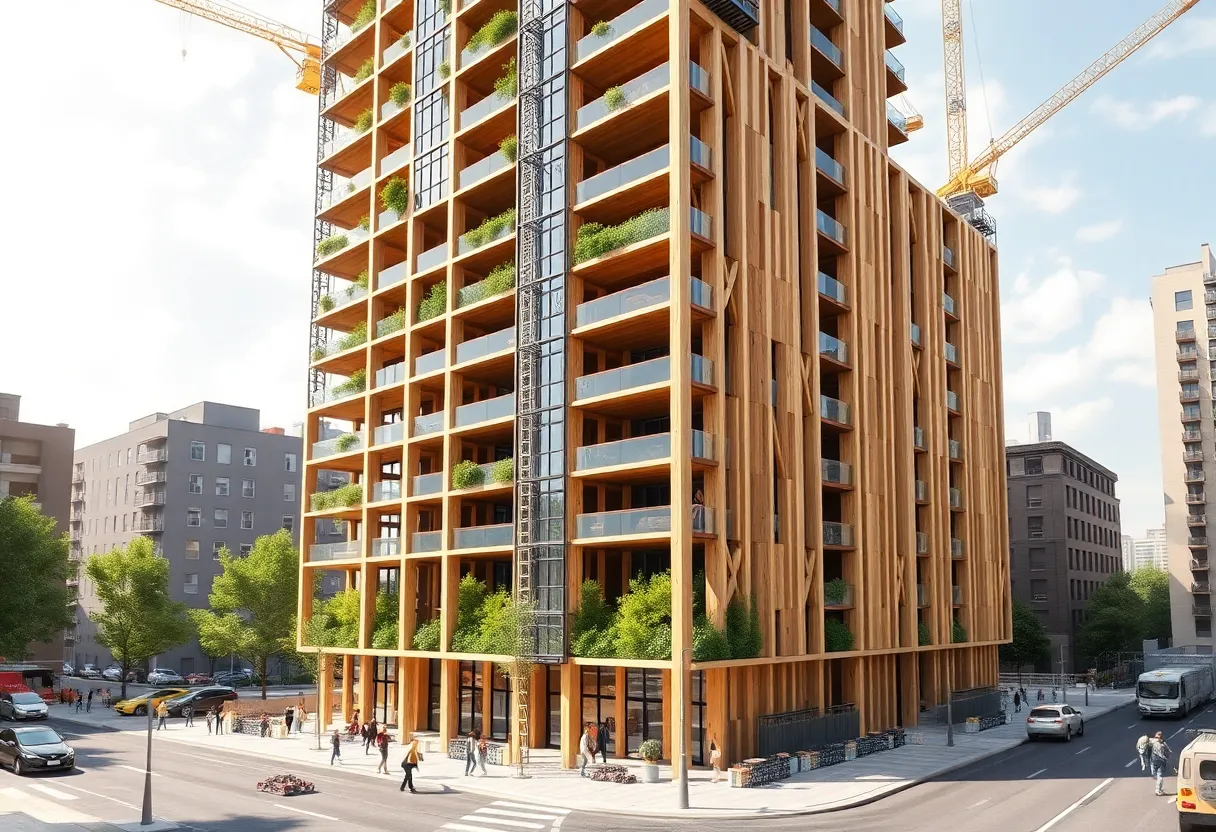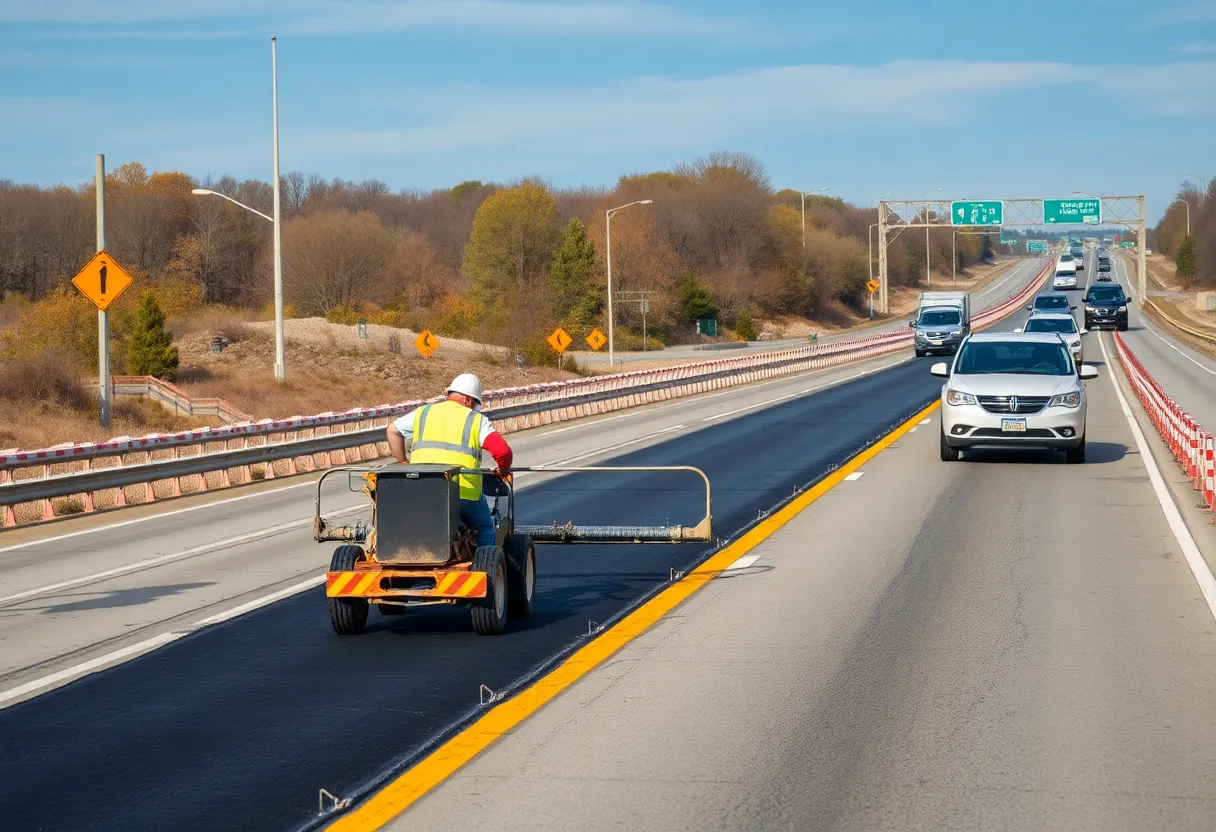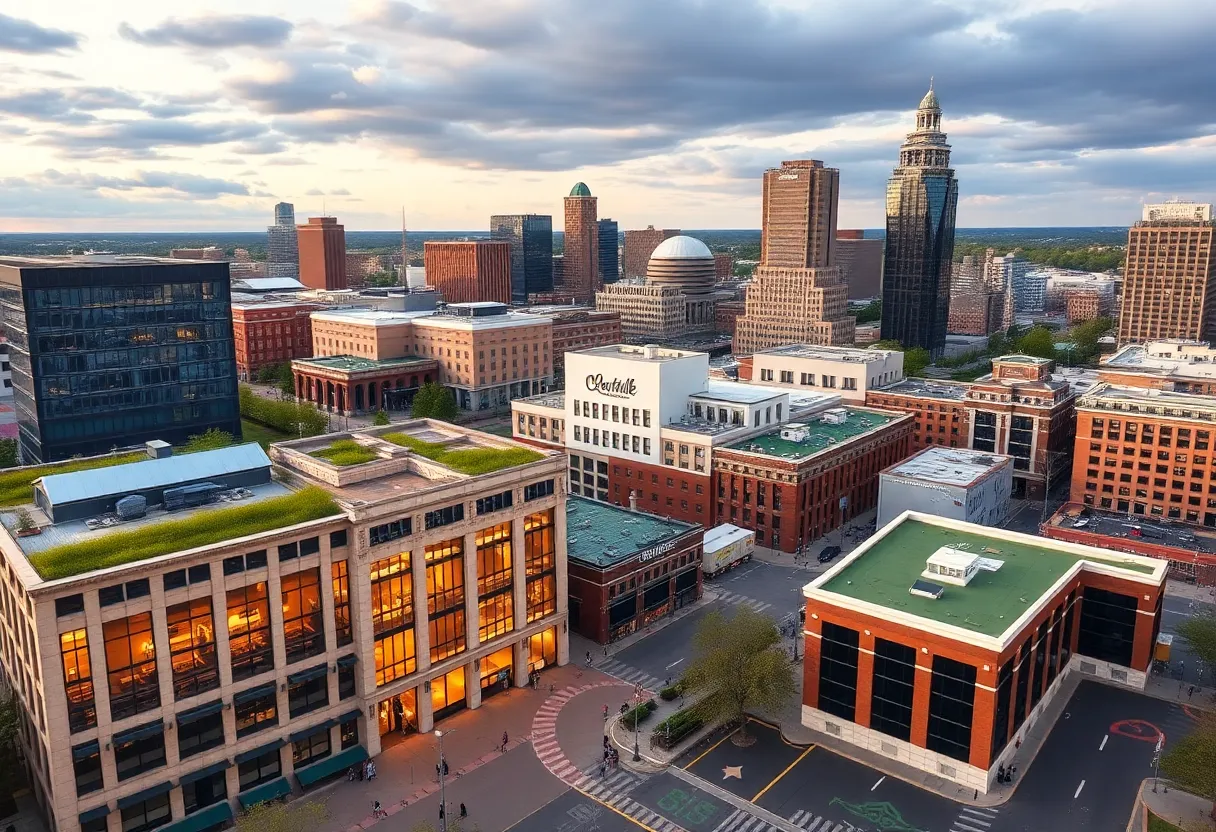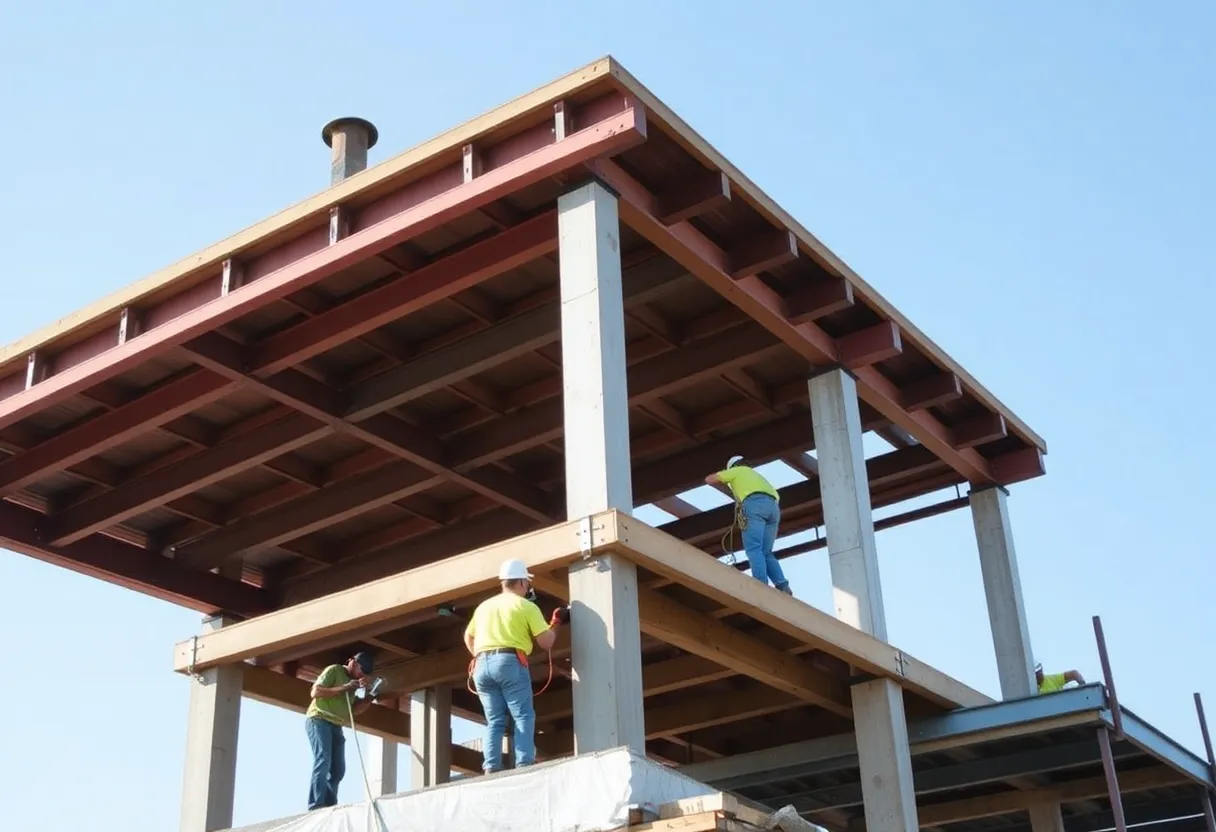News Summary
The construction of Portland’s tallest mass timber skyscraper has been paused due to a 25% tariff on timber imports. Developers are facing increased costs amounting to millions, leading to a project freeze while engineers consider redesigning the building with domestic materials. Originally slated for an earlier completion, the project is now delayed until 2028. This situation highlights broader industry challenges and may stall the adoption of mass timber in future construction projects.
Portland’s Tallest Mass Timber Building Construction Halted by Tariffs
In Portland, the construction of what was set to be the tallest mass timber building in the United States—a 32-story skyscraper—has been paused due to tariffs on timber imports. Developers have pointed to a 25% duty that has increased project costs by millions of dollars, leading to an immediate freeze on work.
This halt affects a high-profile, eco-friendly structure intended to demonstrate sustainable building methods. Engineers have begun redesigning the project to incorporate domestic materials, but these changes are causing significant delays. The building’s completion, originally planned earlier, is now projected for 2028 as a result of these complications.
The tariffs are part of broader trade tensions that have impacted the construction industry. This setback not only disrupts the timeline for the Portland project but also highlights challenges in the national composite markets, where import restrictions have led to similar issues for other developments. The increased costs have forced developers to reassess their strategies, potentially affecting the overall adoption of mass timber in future projects.
Supporters of green building practices are calling for policy adjustments to ease these barriers, emphasizing the need for more accessible materials to promote environmentally friendly construction. The pause in construction has also raised concerns about its effects on jobs, particularly in sectors like woodworking and assembly, where employment opportunities are now at risk.
Despite these obstacles, efforts to innovate continue. Alternatives such as recycled timber are being explored to mitigate the impact of the tariffs. This situation reflects ongoing national trends, where similar restrictions have caused delays in various construction projects across the country.
Background on the Project and Industry Trends
The 32-story building in Portland was designed to be a landmark for sustainable architecture, using mass timber as a primary material to reduce carbon emissions compared to traditional steel and concrete structures. Mass timber, made from layered wood products, offers strength and environmental benefits, making it a popular choice for eco-conscious developments.
However, the imposition of the 25% tariffs on imported timber has escalated material costs, prompting developers to halt progress until viable alternatives can be secured. This is not an isolated incident; national data indicates that import restrictions are affecting multiple sectors, including construction materials like composites, leading to widespread project delays.
In the broader context, the construction industry is facing headwinds from economic factors, as evidenced by recent reports of reduced hiring and challenges in labor markets. These trends underscore the need for adaptive measures, such as increased reliance on local sourcing, to maintain momentum in building projects.
Experts suggest that these developments could lead to greater innovation, with a focus on domestic resources and recycled materials helping to address the gaps created by tariffs. The Portland project’s delays serve as a case study for how trade policies can influence large-scale construction efforts nationwide.
In summary, the halt in Portland’s ambitious mass timber skyscraper highlights the immediate financial and logistical challenges posed by tariffs, while also pointing to potential long-term shifts toward more sustainable and locally sourced materials in the industry.
To provide more context, the use of mass timber in construction has gained popularity over the past decade due to its lower environmental impact. For instance, it sequesters carbon, helping to combat climate change, and is often faster to assemble than traditional materials. In Portland, this project was expected to set a precedent for urban development, blending high-rise efficiency with ecological responsibility.
The 25% duties specifically target imported timber, which developers had planned to use for structural elements, adding millions to the budget and forcing a reevaluation of the entire design. This has led to a ripple effect, where engineers are not only switching materials but also coordinating with suppliers to ensure compliance with new cost constraints.
From a national perspective, similar issues have been reported in various regions, where construction firms are pulling back on hiring and scaling down operations due to rising material prices. This aligns with recent observations of a 44% drop in crane counts across North America, indicating a slowdown in major building activities.
Advocates argue that policy changes could alleviate these pressures, fostering an environment where green building initiatives thrive without being hampered by international trade disputes. As the industry adapts, the focus on recycled timber and other innovations could pave the way for more resilient construction practices in the future.
Overall, this event in Portland underscores the interconnectedness of global trade and domestic construction, emphasizing the need for balanced approaches to support economic and environmental goals. With completion eyed for 2028, stakeholders are monitoring how these challenges might reshape the project’s outcome and influence similar endeavors across the nation.
(Word count: 612)
Frequently Asked Questions
- Q1: What has halted the construction of the tallest mass timber building in the US?
- Q2: How have the tariffs affected the project’s costs?
- Q3: What was the purpose of the building?
- Q4: What actions are being taken in response to the delays?
- Q5: What broader impacts are associated with this issue?
A1: Tariffs on timber imports have halted construction of the tallest mass timber building in the US, a 32-story skyscraper in Portland.
A2: Developers cite 25% duties increasing costs by millions, prompting project freezes.
A3: The eco-friendly structure aimed to showcase sustainable methods.
A4: Engineers redesigned with domestic materials, but delays mount.
A5: The setback affects jobs in woodworking and assembly. National trends show similar hitches in composite markets, where import restrictions soar. Despite challenges, innovation in alternatives like recycled timber persists. Completion now targeted for 2028, the hiatus reflects broader trade tensions. Experts predict rallies for local sourcing initiatives.
Key Features Chart
| Feature | Details |
|---|---|
| Building Height | 32 stories |
| Location | Portland |
| Primary Material | Mass timber |
| Key Challenge | 25% tariffs on timber imports |
| Projected Completion | 2028 |
| Broader Impact | Affects jobs and national trends in composite markets |
| Innovations | Use of recycled timber and domestic materials |
Deeper Dive: News & Info About This Topic
Construction FL Resources
Construction begins on 13‑story mass timber student housing at 9th and High in Columbus
Timber construction market set to more than double as engineered wood rises
Daito Trust secures JPY140 billion syndicated loan to refinance debt and back real‑estate expansion
Soo Locks cost estimate drops to about $2.62 billion; summer finish still expected
Procore and cloud partner embed AI agents to transform construction workflows
Global Concrete Contractor Market Poised for Steady Growth
Construction industry embraces ERP and industrial AI to boost performance
Canada at a housing crossroads: productivity, modular wins and a new spaceport
U.S. Construction Nears Transformative Decade as Leadership and Talent Become Bottlenecks
Texas Timber Industry Resilience Amid Market Trends
Author: Construction FL News
The FLORIDA STAFF WRITER represents the experienced team at constructionflnews.com, your go-to source for actionable local news and information in Florida and beyond. Specializing in "news you can use," we cover essential topics like product reviews for personal and business needs, local business directories, politics, real estate trends, neighborhood insights, and state news affecting the area—with deep expertise drawn from years of dedicated reporting and strong community input, including local press releases and business updates. We deliver top reporting on high-value events such as the Florida Build Expo, major infrastructure projects, and advancements in construction technology showcases. Our coverage extends to key organizations like the Associated Builders and Contractors of Florida and the Florida Home Builders Association, plus leading businesses in construction and legal services that power the local economy such as CMiC Global and Shutts & Bowen LLP. As part of the broader network, including constructioncanews.com, constructionnynews.com, and constructiontxnews.com, we provide comprehensive, credible insights into the dynamic construction landscape across multiple states.





